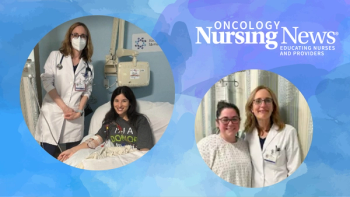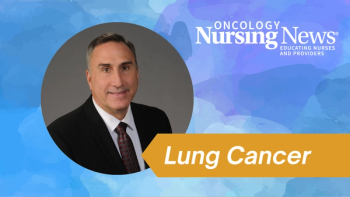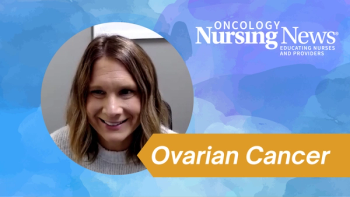
Gwendolynn Harrell Discusses the Benefit of Identifying Symptom Clusters
Gwendolynn Harrell, RN, Palliative Care Nurse Liaison, Supportive Oncology Care Team, Emory University, discusses a study that examined symptom clustering among patients visiting a supportive oncology clinic.
Gwendolynn Harrell, RN, Palliative Care Nurse Liaison, Supportive Oncology Care Team, Emory University, discusses a study that examined symptom clustering among patients visiting a supportive oncology clinic.
Harrell says the goal of the study was to better manage symptoms by either anticipating future symptoms based on a previous symptom or by helping patients identify what they were feeling and why they were feeling it.
Results showed that there were three different clusters: psychological, treatment-related and gastrointestinal. Interestingly, pain is a symptom that appears in a multitude of clusters, Harrell says.
Identifying symptom clusters may promote researchers’ understanding of the pathophysiology of cancer, help prioritize effective pharmacotherapies, and identify drugs likely to help more than one symptom. ​
Newsletter
Knowledge is power. Don’t miss the most recent breakthroughs in cancer care.















































































